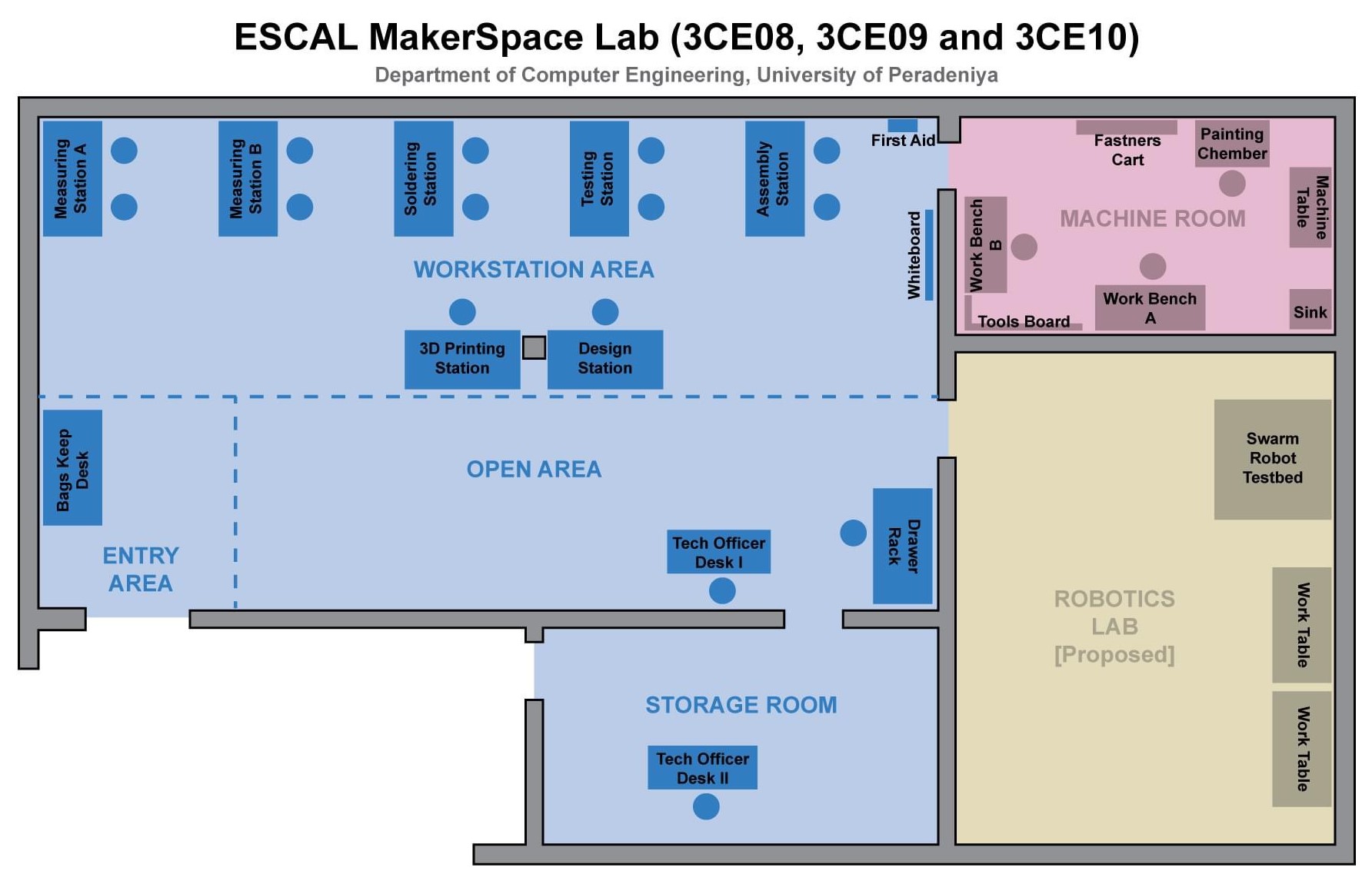What is ESCAL?

The Embedded Systems and Computer Architecture Laboratory (ESCAL) is a research group at the Department of Computer Engineering at the University of Peradeniya. The primary focus of the group is inclined towards micro-architectural design aspects of embedded microprocessors and their security and reliability concerns.
The group is led by Roshan Ragel and has continued collaborations with Professor Sri Parameswaran at the Embedded Systems Lab, School of Computer Science and Engineering, the University of New South Wales (UNSW), Sydney.
The group consists of the academic staff members of the Department of Computer Engineering, the Postgraduate (Ph.D., M.Phil., M.Eng., and M.Sc.) students from both the Department of Computer Engineering and the Postgraduate Institute of Science (PGIS), and the Undergraduate students from the Department of Computer Engineering and the Department of Statistics and Computer Science. The group also collaborates with the academic staff members, postdoctoral researchers and postgraduate students from the School of Computer Science and Engineering, UNSW. Roshan Ragel regularly visits UNSW, Sydney, as a visiting research fellow.
CE Smart Inventory
CE Smart Inventory Management System is designed to make managing and scheduling lab equipment easier. This system allows students and lecturers to check tool availability and make reservations online.
Moreover, it provides a platform for the lab staff to manage the inventory and monitor the usage of tools.
ESCAL Bio-Medical
Bridging Technology and Healthcare for a Better Future
The ESCAL Bio-Medical focuses on applying Embedded Systems and Computer Architecture principles and techniques to the field of biomedical engineering and healthcare. This laboratory conducts research and development activities to design and optimize hardware and software systems, specifically tailored for biomedical applications. Research and development activities span a wide range of areas, including medical imaging, telemedicine, remote patient monitoring, bioinformatics, medical signal processing, and personalized medicine.
ESCAL Robotics
The Embedded Systems and Computer Architecture Laboratory (ESCAL) is a specialized facility within the Robotics Section at the University of Peradeniya. ESCAL focuses on research, development, and experimentation in the fields of embedded systems and computer architecture, with a particular emphasis on robotics applications.
The laboratory serves as a hub for students, researchers, and faculty members to collaborate and explore innovative solutions in the realm of robotics. ESCAL is equipped with state-of-the-art hardware and software tools, allowing for the design, implementation, and testing of various embedded systems and computer architectures.
ESCAL GPU
Welcome to the Embedded Systems and Computer Architecture Lab (ESCAL) GPU Research Center at the prestigious University of Peradeniya, a venerable institution with a rich academic tradition. Rooted in pioneering research, our center is dedicated to advancing the frontiers of High-Performance Computing (HPC) within the realm of GPU technologies, tailored to the nuances of embedded computer systems.
At ESCAL GPU Research Center, we are committed to enhancing computational performance by orchestrating a symphony of innovations spanning the entire computing spectrum. Our dynamic research landscape encompasses a holistic approach, seamlessly interweaving algorithmic refinements and hardware enhancements. With an unwavering emphasis on achieving accelerated computing prowess, our endeavors encompass diverse domains, including but not limited to bio-computing, computer security, machine learning, data mining, and physics.
Anchored within the Department of Computer Engineering, our center operates as an integral part of the NVIDIA Research Center at the University of Peradeniya. Collaborating with the global expertise of NVIDIA GPUs, we harness their immense capabilities to propel high-performance computing to unprecedented heights.
As trailblazers in GPU Computing, our mission echoes the ethos of innovation, collaboration, and excellence. We invite you to explore our NVIDIA Research Center's insights and accomplishments, accessible through our official website here. Join us on this transformative journey as we redefine the boundaries of computation and unlock new vistas of embedded system performance.